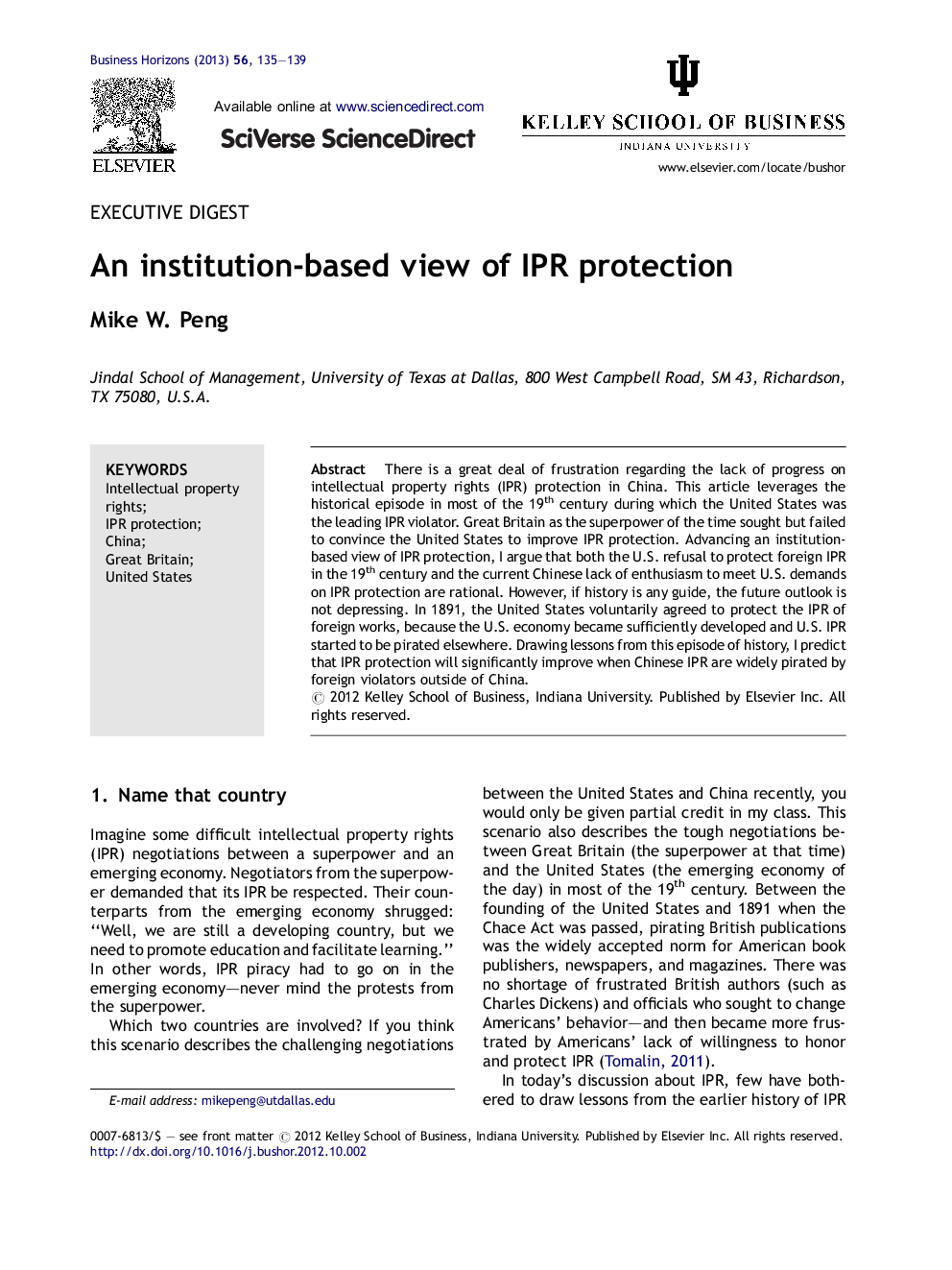| Article ID | Journal | Published Year | Pages | File Type |
|---|---|---|---|---|
| 1014137 | Business Horizons | 2013 | 5 Pages |
There is a great deal of frustration regarding the lack of progress on intellectual property rights (IPR) protection in China. This article leverages the historical episode in most of the 19th century during which the United States was the leading IPR violator. Great Britain as the superpower of the time sought but failed to convince the United States to improve IPR protection. Advancing an institution-based view of IPR protection, I argue that both the U.S. refusal to protect foreign IPR in the 19th century and the current Chinese lack of enthusiasm to meet U.S. demands on IPR protection are rational. However, if history is any guide, the future outlook is not depressing. In 1891, the United States voluntarily agreed to protect the IPR of foreign works, because the U.S. economy became sufficiently developed and U.S. IPR started to be pirated elsewhere. Drawing lessons from this episode of history, I predict that IPR protection will significantly improve when Chinese IPR are widely pirated by foreign violators outside of China.
